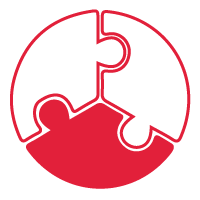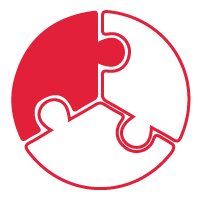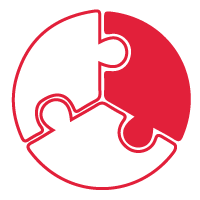ANSC Curricular Learning Outcomes
The curriculum in the B.S. in Animal & Avian Science degree is designed around seven course learning objectives. We use these learning objectives to build our courses sequentially so that graduates in our program are well-rounded in the discipline and ready to start careers or further education working with animals.
Careers & Opportunities in ANSC
Graduates of our Undergraduate ANSC Program will be well-prepared for a future working with animals.
Animal Structure & Function
The Animal Sciences undergraduate curriculum is designed around 7 core learning objectives. Graduates of the ANSC undergraduate program will be able to:
-
Correctly label basic anatomy of a domestic animal
-
Discuss its role in the animal’s normal physiology
Safely Handle Animals
Graduates will be able to safely approach, restrain, and move:
-
Horses
-
Sheep
-
Dairy Cows
-
Pigs
-
Chickens
-
Other species specific to their curricula
Animal Husbandry Requirement
Graduates will be able to:
-
Apply animal science knowledge
-
Research the creation of rational, feasible, and legal animal management programs which consider appropriate:
- Nutrition
- Husbandry
- Health
- Reproduction
- Welfare
Animal Science Literacy
Graduates will be able to:
-
Select, understand, and critically evaluate scientific, animal science studies
-
Employ research that is applicable, timely, accurate, and useful for their animal care and management needs
Knowledge of Major Issues in ANSC
Graduates will be well-versed in the issues related to animal agriculture such that they can contribute to societal debates around:
-
Future of farming
-
Use of antibiotics in animal agriculture
-
Sustainability of our animal farms
-
Farm worker needs
-
Scaling agricultural enterprises up and down to meet a growing population’s protein needs
Communication
Graduates will be able to communicate effectively in-print and online, through oral, written, and visual means with:
-
The public
-
Producers
-
The scientific community
Courses Summary
Our curriculum is comprised of 4 sets of courses:
Core ANSC Courses
All ANSC majors take a core set of courses designed to provide them with the fundamental science background they will need. These courses include:
- ANSC 101 - Introduction to Animal sciences
- ANSC 103 - Principles of Animal Science Lab
- ANSC 204/205 - Anatomy and lab
- ANSC 212/214 - Physiology and lab
- ANSC 314 - Animal Nutrition and ANSC 315 - Applied Animal nutrition
Animal Management Courses
In these 200-level courses, students learn more about the care and management of a specific species or related set of species. These courses include:
- ANSC 220 - Livestock Management
- ANSC 232 - Horse Management
- ANSC 245 - Sheep Management
- ANSC 237 - Equine Reproductive Management
- ANSC 242 - Dairy Cattle Management
- ANSC 250 - Companion Animal Management
- ANSC 255 - Introduction to Aquaculture
- ANSC 260 - Laboratory Animal Management
- ANSC 262 - Commercial Poultry Management
- ANSC 282 - Grazing Animal Management
Lower Division Electives
In these 100- and 200-level courses, students can learn material related to their first two years of the curriculum. These courses include:
- ANSC 115 - Careers in Animal Science
- ANSC 120 - Introduction to Dairy Judging
- ANSC 121 - Introduction to Livestock Judging
- ANSC 210 - Veterinary Terminology
- ANSC 227 - Eating with Eyes Wide Open
- ANSC 233 - Equine Behavior
- ANSC 252 - Introduction to Diseases of Wildlife
- ANSC 270 - Animal Enterprise Management
Advanced ANSC Electives
In these 300- and 400-level courses, students get an in-depth consideration of topics important to animal science research and practice. These courses include:
- ANSC 330 - Equine Science
- ANSC 340 - Health Management of Animal Populations
- ANSC 359 - Internship Experience in Animal and Avian Sciences
- ANSC 410 - The Gut Microbiome and it's Roles in Health and Disease
- ANSC 417 - Regulatory Issues in Animal Care and Management
- ANSC 435 - Experimental Embryology
- ANSC 436 - Animal Health Policy and Communication
- ANSC 437 - Animal Biotechnology
- ANSC 440 - Zoonotic Diseases and Control
- ANSC 443 - Physiology of Lactation
- ANSC 444 - Domestic Endocrinology
- ANSC 445 - Comparative Digestive Physiology
- ANSC 446 - Physiology of Mammalian Reproduction
- ANSC 450 - Animal Breeding Plans
- ANSC 452 - Avian Physiology
- ANSC 453 - Animal Welfare and Bioethics
- ANSC 455 - Applied Animal Behavior
- ANSC 460 - Comparative Vertebrate Immunology
- ANSC 4890 - Nutritional Aspects of Metabolic Disease
- ANSC 497 - Animal Biotechnology Recombinant DNA Laboratory
Teaching Faculty
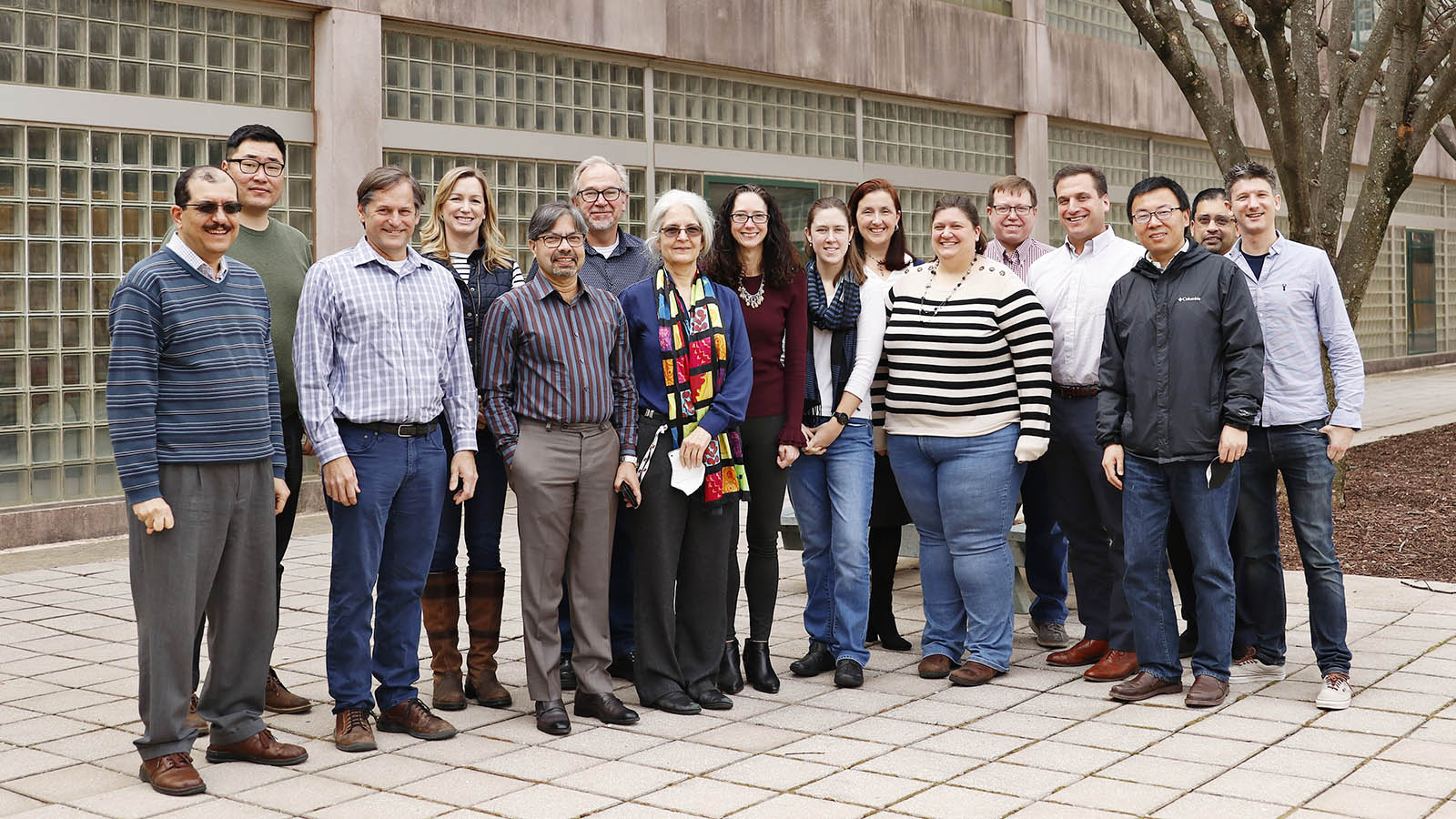 The Department of Animal and Avian Sciences at the University of Maryland is home to world-class tenured and tenure-track faculty, lecturers, and affiliated faculty.
The Department of Animal and Avian Sciences at the University of Maryland is home to world-class tenured and tenure-track faculty, lecturers, and affiliated faculty.
ANSC Undergraduate Faculty:

Charlie Apter
Equine, Livestock
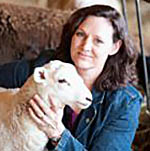
Angela Black
Anatomy, Lab Animal Management

Debrabata Biswas
Pathobiology & Infectious Disease
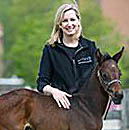
Amy Burk
Equine
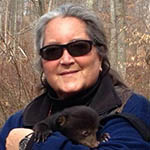
Cindy Driscoll
Wildlife

Chris Hakenkamp
Statistics
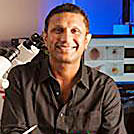
Iqbal Hamza
Genetics

Younggeon Jin
Gastrointestinal Health & Physiology
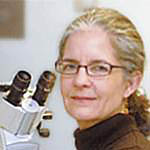
Carol Keefer
Embryology, Reproduction, Graduate Program Director

Byung-Eun Kim
Nutrient Utilization & Metabolism

Rick Kohn
Nutrition

Tom Porter
Endocrinology, Poultry

Mohamed Salem
Aquaculture

Nishanth Sunny
Nutrition

Lisa Taneyhill
Reproduction, Endocrinology

Monica VanKlompenberg
Physiology, Lactation, Internships

Zhengguo Xiao
Reproduction, Epidemiology
